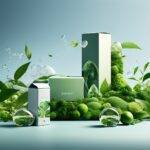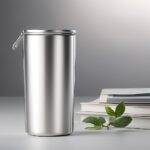Starting June 1, a significant change is underway in Washington state as foam containers face prohibition. The ban targets a wide range of items, from clamshell takeout containers to coffee cups, trays, and other food and drink carriers, all made from expanded polystyrene (EPS).
Seattle Prepares for Transition
Seattle residents and visitors to the Evergreen State will notice shifts in their dining experiences as establishments adapt to the upcoming ban. This legislative move, originating from a law passed in 2021, extends beyond the food industry, encompassing foam packing peanuts, which were already prohibited.
Understanding Expanded Polystyrene (EPS)
EPS, the material targeted by the ban, is described by the Washington State Department of Ecology as a lightweight cellular plastic comprising small hollow spherical balls that undergo expansion and processing through various techniques. Notoriously brittle, EPS easily fragments into minuscule pieces.
Recycling Challenges
Recycling EPS poses significant challenges due to its composition and processing requirements. The material is not widely accepted in residential recycling programs across Washington, instead considered a contaminant. Consequently, EPS products often find their way into landfills, waste-to-energy facilities, or the environment.
Legal Implications and Exemptions
The ban affects a broad spectrum of entities, including individuals, businesses, and government bodies involved in the sale or distribution of EPS products. However, certain exemptions exist, notably for packaging related to raw or uncooked meat, fish, poultry, or seafood, along with specific types of cartons.
Enforcement Measures
Violating the ban carries financial penalties. Offenders face a $250 fine for a first offense, with repeat violations inviting fines of up to $1,000.
Conclusion: A Shift Towards Sustainability
As Washington implements its ban on EPS products, the state takes a step towards environmental sustainability. By curbing the use of non-recyclable materials, the legislation aims to reduce pollution and promote eco-friendly alternatives in everyday consumption.
For the latest updates on local news, weather, and sports in Seattle and beyond, download The Local News App and stay informed.









Leave a Reply